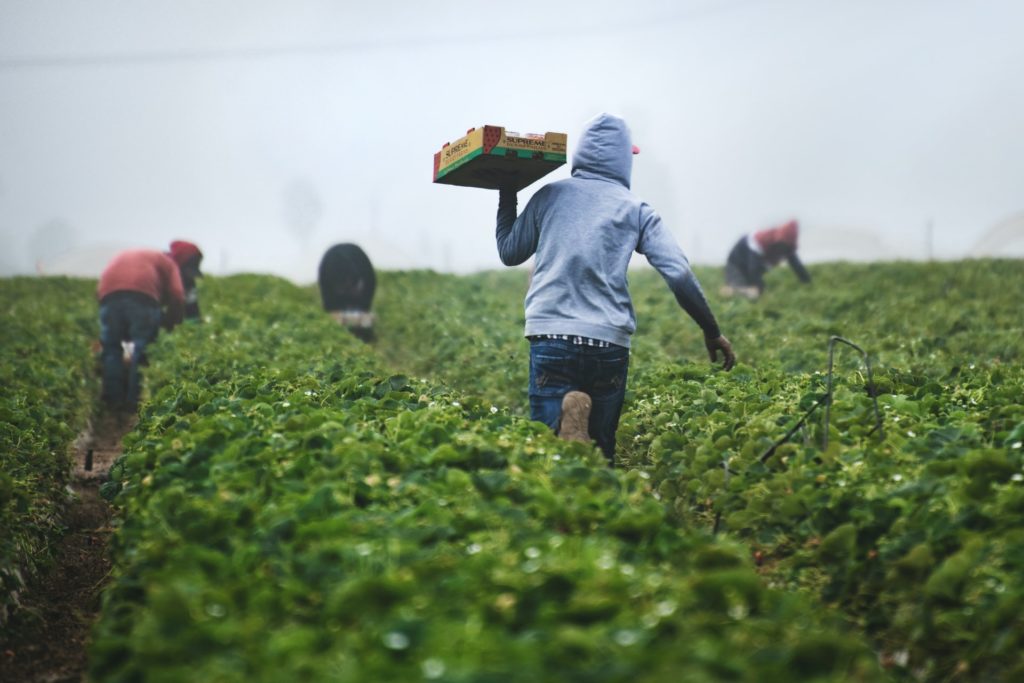Removing structural obstacles and creating opportunities for youth in food systems are political problems and need to be solved with political decisions based on recognition and action for youth. Today’s food systems are the largest employer of youth, yet they do not provide adequate and sustainable livelihood opportunities. This needs to change to create sustainable and inclusive food systems. Secure livelihoods and opportunities for youth will be key in a food system transformation where also young people can see careers and prosperous futures.
This article draws from the discussions of the side-event Growing entrepreneurs for sustainable and inclusive food systems, arranged by SIANI, the Government of Sweden, We Effect and Vi-Agroforestry at the World Food Forum 2021. The event brought together youth active in different sectors within food systems, from different countries and with different backgrounds to identify challenges and put forward the urgently needed actions.
Elisabeth Hidén from The Federation of Swedish Farmers opened her intervention by stating that the average farmer in Sweden is a 58-year-old man. This poses huge challenges for future food production, but it is also indicates the situation for youth and women in farming today. Working in agriculture and food systems is not seen as an attractive field of work in either Sweden or Uganda. Prudence Ayebare from Uganda National Farmers Federation (UNFFE) argued that agriculture is not seen as a profession, making the sector less attractive for youth. The panellists agreed that this needs to change. Knowledge about food production and the awareness of careers and opportunities within food systems need to increase among the youth. It is partly a task that includes branding, storytelling, and communications, but the lack of youth engaged in agriculture is not only a lack of interest. It is also a sign of structural barriers that requires deeper analysis and other types of interventions to be solved.
Political will and action is needed
Stephano Msuya from the smallholder farmers’ network MVIWAKI works in the Kilimanjaro region in Tanzania. He raised the challenge of little support from the Tanzanian government to engage young people in food systems. In Uganda, Hillary Nahurira from the Agripreneurship Alliance mentioned high taxes on agricultural equipment, as well as bureaucracy and complicated patent systems, as obstacles limiting youth’s participation and innovative ideas in the food systems sector. According to him, governments must ease the paths for awarding patent rights to protect youth from exploitation by big corporations. The government can also assist youth to engage in agriculture by subsidizing access to affordable equipment.
In Sweden, Elisabeth argues that farmers and decision-makers need to discuss farming and food production more and highlight the benefits of being a farmer. She also mentioned that societal services are increasingly concentrated in urban areas – posing obstacles for people to stay in rural areas and engage in farming.
The panellists also acknowledged that governments play a significant role in the solutions and to deliberately engage youth in food systems. Concretely, Hillary argued that education systems must change to favour skills needed in the agricultural sector to encourage youth to make a career in agriculture and food systems.
Access to resources
All panellists discussed the lack of resources as a common obstacle to engage youth in food systems. Farming activities involve a lot of aspects, including value addition, packaging, and storage – all requiring financial means and investments. In addition, farming inputs are expensive, excluding young people that are more likely to lack capital. There is a need for new business models, and simpler ways for youth to access finance.
Capital and finance are also directly related to the access to land. In Sweden, the lack of capital, together with the low profitability in the agriculture sector, are the biggest obstacles for youth in food systems today. Swedish farmers are only paid 10 % of what the consumers pay for food in supermarkets. As a result of this, farms grow bigger and bigger to be able to make money. It becomes a vicious cycle, as larger farms are even more difficult to access for youth.
Challenges related to resource access boil down to power relations, where big companies and stakeholders with more resources can implement ideas faster than young farmers. Other resources, such as technological advancements, can nevertheless support youth in farming. However, the use of the new technologies among young people is still dependent on having the resources and knowledge to access and use these.
Joining forces in associations and networks
Farmers’ associations are a tool to help young farmers deal with challenges in today’s food systems. Through these associations, youth are brought together creating a joint voice. Prudence phrased the Ugandan proverb “one finger cannot pick a nut”, meaning that youth need to work together in collaborative efforts to achieve better results. As a group, it will also be easier to find financing, access loans directed towards farmers groups, and be eligible for community funding from districts councils, Stephano explained. Networks such as SIANI or forums such as the World Food Forum could play an essential role in building and supporting these associations and networks.
What is needed now is political action and political commitment. The Food Systems Summit and the World Food Forum have been central events for furthering the discussions of the role of youth in future food systems. We know the obstacles, and we have many of the solutions – the next step is action and political will. Or, as Greta Thunberg said at the Youth4Climate Summit in Milan, we need less of the “blah blah blah” and get to work with real action and political decisions.
Watch the recording of the event.
Reporting by Alice Castensson and Jonathan Eng
